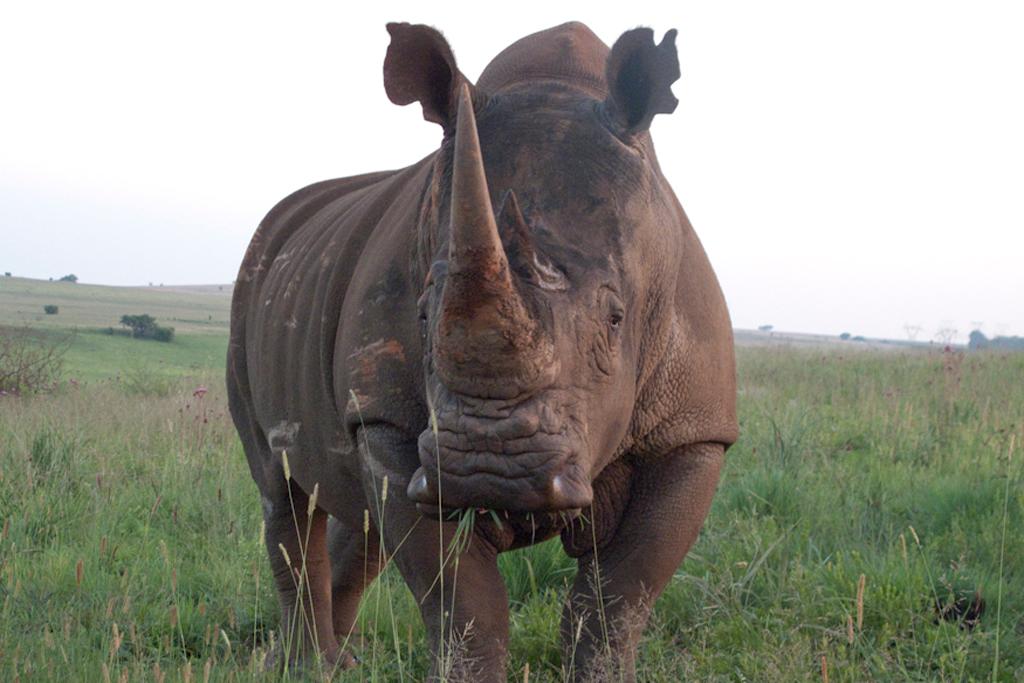South Africa: Rhino horns poisoned to thwart poachers
A white rhino at the Rietvlei Nature Reserve near Pretoria, South Africa. After two of the reserve’s rhinos were killed by poachers, rangers decided to de-horn the remaining animals, a drastic measure to try and prevent future poaching.
JOHANNESBURG, South Africa — The owner of an exotic game reserve in South Africa is taking a drastic step to prevent rhino poaching: he has injected his rhinos' horns with poison.
Damian Vergnaud, owner of Inverdoorn reserve near Cape Town, said he approached scientists and a vet to work towards finding a substance that would deter poachers.
A record number of rhinos have been killed for their horns this year in South Africa, which has more rhinos than any other country thanks to conservation efforts.
The poaching is fueled by demand for rhino horns in Vietnam and other Asian countries, where they are used in traditional medicine despite the fact that experts say they have no medicinal value.
More from GlobalPost: South Africa: rhino poaching at record high
Vergnaud told the South African Press Association that he decided not to dehorn his rhinos, like some game reserves have done, because it is "very painful" and "traumatizing" for the animals.
"I really wanted to create a different defense system," he told SAPA.
In tests, Vergnaud injected his rhinos' horns with a combination of three non-lethal substances: one with a terrible taste, one to make a horn visible on an X-ray machine, and one that is a dye, the same dye used to foil cash-in-transit robbers.
"We hope that it will inform poachers, it [poaching at the reserve] is going to be a waste of time," Vergnaud said.
Vergnaud has offered to share his home-brewed poacher repellent with other game reserve owners looking to protect this endangered animal.
More from GlobalPost: "Flying rhino" video shows dramatic black rhino relocation in South Africa
The story you just read is accessible and free to all because thousands of listeners and readers contribute to our nonprofit newsroom. We go deep to bring you the human-centered international reporting that you know you can trust. To do this work and to do it well, we rely on the support of our listeners. If you appreciated our coverage this year, if there was a story that made you pause or a song that moved you, would you consider making a gift to sustain our work through 2024 and beyond?
